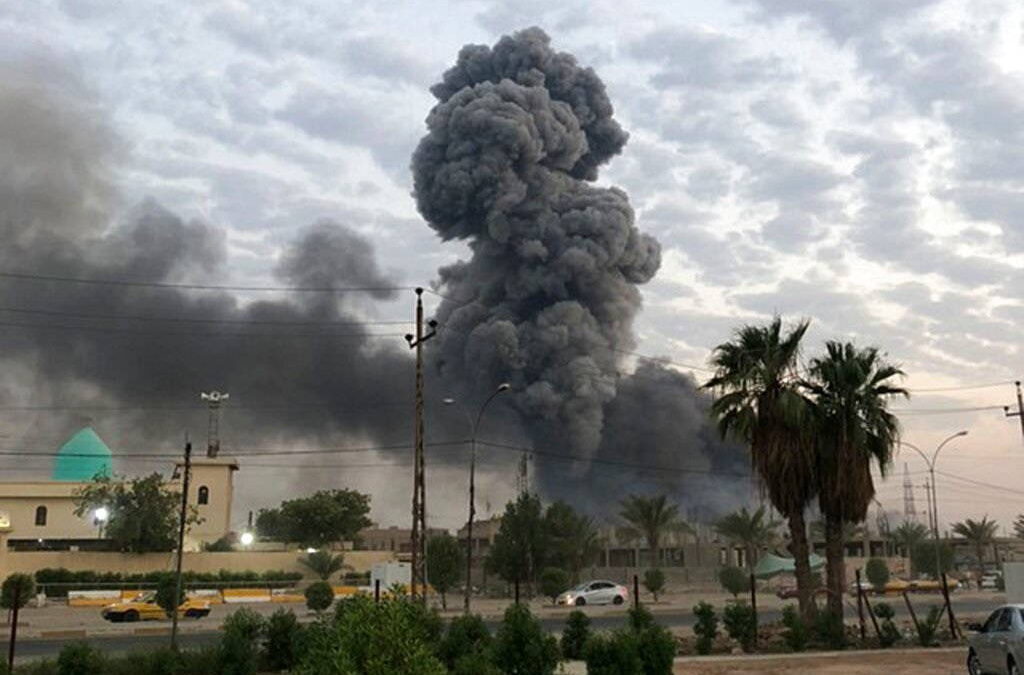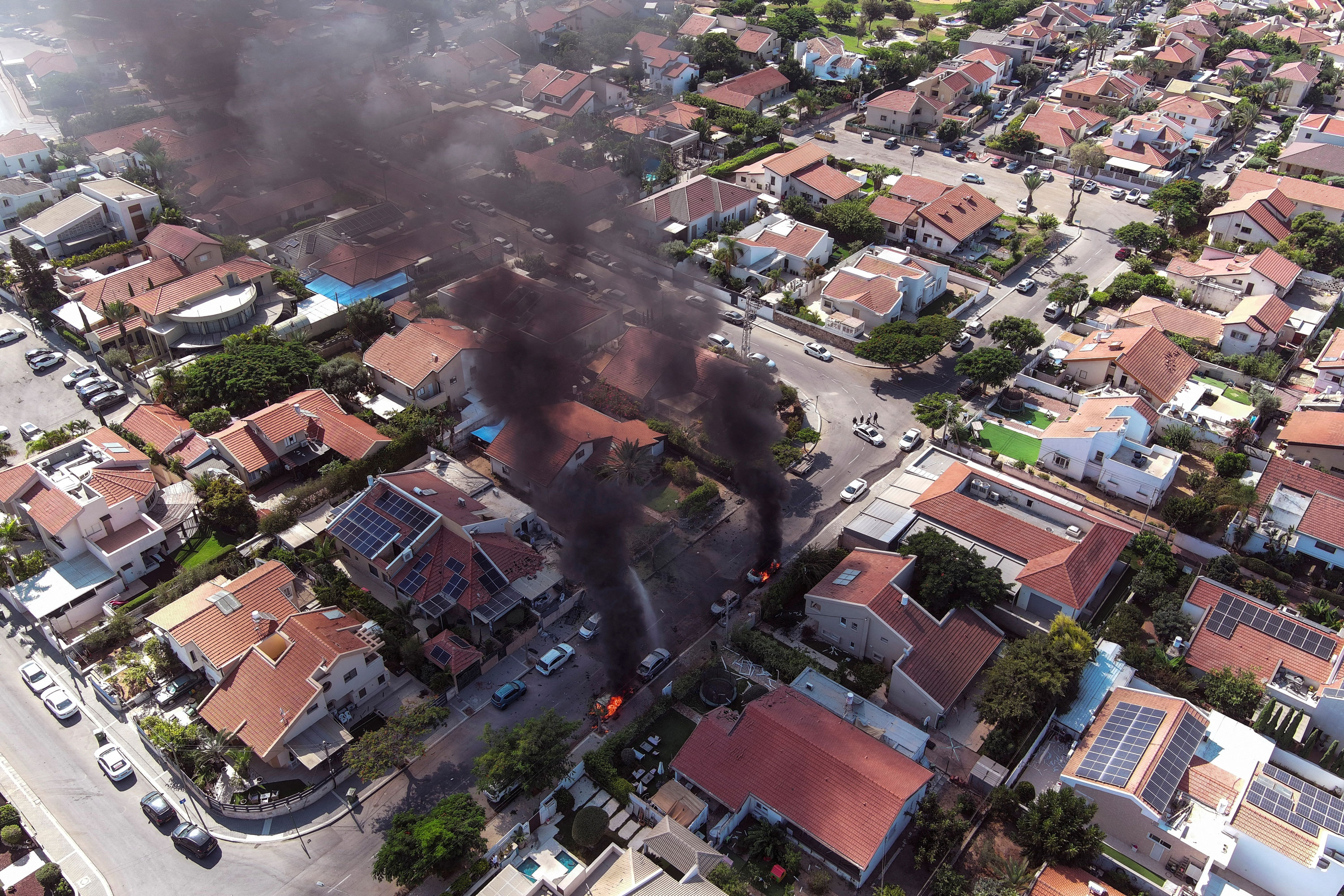Historical Context of Iran-Israel Relations

The relationship between Iran and Israel has been marked by deep-rooted tensions and conflicts, shaped by a complex interplay of historical, ideological, religious, and geopolitical factors. This complex relationship has evolved over decades, with key events and turning points significantly influencing its trajectory.
The Early Years: From Cooperation to Conflict
The early years of the relationship between Iran and Israel were characterized by a period of cooperation and limited conflict. Following the establishment of Israel in 1948, Iran, under the rule of the Shah, maintained a relatively neutral stance towards the new state. However, the 1950s saw the emergence of tensions as Israel’s growing military power and its close ties with the United States began to raise concerns in Iran. This period witnessed limited conflicts, primarily related to water resources and border disputes.
The Iranian Revolution and the Rise of the Islamic Republic, Iran attack israel israeli
The 1979 Iranian Revolution, which led to the overthrow of the Shah and the establishment of the Islamic Republic, marked a dramatic shift in Iran-Israel relations. The revolution ushered in a new ideological framework, rooted in Islamic fundamentalism and anti-Western sentiment. This ideological shift had a profound impact on Iran’s foreign policy, leading to a complete break with Israel and the adoption of a confrontational stance towards the Jewish state.
The Role of Ideology, Religion, and Geopolitical Interests
The Iranian Revolution brought to the forefront the issue of ideology and religion as key drivers of the relationship between Iran and Israel. The Islamic Republic’s ideology, rooted in Shi’a Islam, views Israel as an illegitimate entity created by Western powers to control the Middle East. The Islamic Republic’s leadership has consistently denounced Israel as a “Zionist regime” and has pledged to “wipe it off the map.”
Geopolitical interests also play a significant role in shaping the relationship. Iran views Israel as a strategic threat, particularly in light of its close ties with the United States and its nuclear capabilities. Israel, in turn, perceives Iran as a major threat to its security, given its support for militant groups in the region and its ambition to develop nuclear weapons.
The Impact of the Iranian Revolution
The Iranian Revolution had a profound impact on Iran-Israel relations, leading to a complete rupture in diplomatic ties and the escalation of tensions. The revolution brought to power a leadership that viewed Israel as an existential threat and a symbol of Western imperialism. The Islamic Republic’s ideology, based on Shi’a Islam, rejected the legitimacy of Israel and declared its goal to be the destruction of the Jewish state.
Recent Developments and Tensions: Iran Attack Israel Israeli

The relationship between Iran and Israel has been characterized by deep mistrust and hostility for decades. In recent years, tensions have escalated significantly, driven by a complex interplay of factors including Iran’s nuclear program, its support for regional militant groups, and Israel’s military actions against Iranian interests.
Military Actions and Cyberattacks
The escalation of tensions between Iran and Israel has been marked by a series of military actions and cyberattacks. Israel has repeatedly targeted Iranian facilities and personnel in Syria, where Iran has been supporting the Syrian government. These actions are often attributed to Israel’s efforts to curb Iran’s regional influence and prevent the transfer of advanced weaponry to Hezbollah, a Lebanese Shia militia backed by Iran. In response, Iran has threatened to retaliate against Israel, and there have been reports of Iranian-backed attacks on Israeli targets. Additionally, both countries have engaged in cyberwarfare, with each side accusing the other of launching disruptive and destructive attacks.
Key Events and Incidents
- 2018: Israel launched airstrikes against Iranian military bases in Syria following an alleged Iranian drone attack on Israeli territory. This incident marked a significant escalation in the conflict, with Israel asserting its right to act preemptively against Iranian aggression.
- 2020: Israel accused Iran of being behind a series of attacks on Israeli ships in the Arabian Sea. The attacks were attributed to Iranian-backed militias and further heightened tensions between the two countries.
- 2021: The United States reimposed sanctions on Iran, following the withdrawal from the Joint Comprehensive Plan of Action (JCPOA), a nuclear deal that had been negotiated under the Obama administration. This move significantly impacted Iran’s economy and contributed to the escalation of tensions with Israel.
- 2022: Israel and Iran have continued to engage in a series of military and cyberattacks. In January, Israel allegedly carried out an airstrike on a Syrian air base, reportedly targeting Iranian assets. In April, Iran claimed responsibility for a drone attack on an Israeli-owned ship in the Arabian Sea.
Role of Regional Actors
The tensions between Iran and Israel have been further complicated by the involvement of regional actors, such as Hezbollah and Hamas. Hezbollah, a powerful Shia militia in Lebanon, is a close ally of Iran and has been involved in numerous conflicts with Israel. Hamas, a Palestinian militant group that controls the Gaza Strip, has also received support from Iran. These groups have been used by Iran to exert pressure on Israel and to advance its regional agenda.
Potential Implications and Future Scenarios

The ongoing tensions between Iran and Israel have far-reaching implications for the region and the world, with the potential for escalation and a direct military confrontation. Analyzing the potential outcomes of the conflict requires considering diplomatic, economic, and military factors.
Potential for Escalation and Military Confrontation
The current situation is characterized by a heightened risk of escalation. The potential for a direct military confrontation between Iran and Israel is a serious concern, as both countries possess significant military capabilities. A miscalculation or an unintended escalation could quickly spiral out of control, leading to a wider regional conflict.
Potential Implications for the Region
The potential implications of a conflict between Iran and Israel for the region are significant. A war would likely destabilize the already volatile Middle East, leading to:
- Increased regional instability: A conflict would further destabilize the region, potentially leading to renewed violence and instability in countries like Lebanon, Syria, and Iraq.
- Humanitarian crisis: A conflict would likely result in significant civilian casualties and displacement, creating a humanitarian crisis.
- Economic disruption: The conflict would disrupt vital energy supplies and trade routes, impacting the global economy.
- Proliferation of weapons: The conflict could lead to the proliferation of weapons of mass destruction in the region, increasing the risk of a wider nuclear conflict.
Potential Implications for the World
The conflict would also have significant implications for the world, including:
- Global energy prices: A conflict could disrupt oil supplies from the Middle East, leading to a surge in global energy prices.
- Increased geopolitical tensions: The conflict could further exacerbate existing geopolitical tensions, particularly between the United States and Iran.
- Global economic instability: A conflict could lead to global economic instability, with potential consequences for financial markets and global trade.
Potential Scenarios and Outcomes
Various scenarios and potential outcomes of the conflict are possible, including:
- Diplomatic resolution: Diplomatic efforts could lead to a negotiated settlement, reducing tensions and preventing a military confrontation. However, the current political climate makes this outcome unlikely.
- Limited military engagement: A limited military engagement, such as airstrikes or cyberattacks, could escalate the conflict but not necessarily lead to a full-scale war. This scenario carries the risk of miscalculation and unintended escalation.
- Full-scale war: A full-scale war between Iran and Israel would have devastating consequences for the region and the world. This scenario would likely involve the use of advanced weaponry, including missiles and drones, and could lead to a wider regional conflict.
Factors Influencing the Outcome
Several factors will influence the outcome of the conflict, including:
- The role of regional powers: The involvement of regional powers like Saudi Arabia, Turkey, and Egypt could significantly impact the course of the conflict.
- The response of the international community: The response of the United Nations and other international organizations will be crucial in shaping the conflict’s trajectory.
- The internal dynamics of Iran and Israel: The political and social dynamics within Iran and Israel will influence their decision-making processes and their willingness to engage in military confrontation.
Conclusion
The ongoing tensions between Iran and Israel pose a significant threat to regional and global security. The potential for escalation and a direct military confrontation is a serious concern, and the implications of such a conflict would be far-reaching and devastating. While diplomatic solutions remain the preferred option, the current political climate and the potential for miscalculation make a peaceful resolution difficult.
